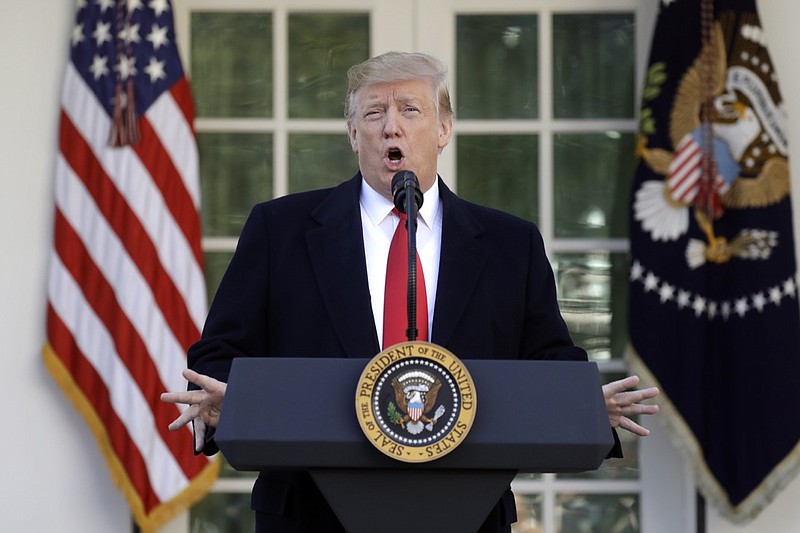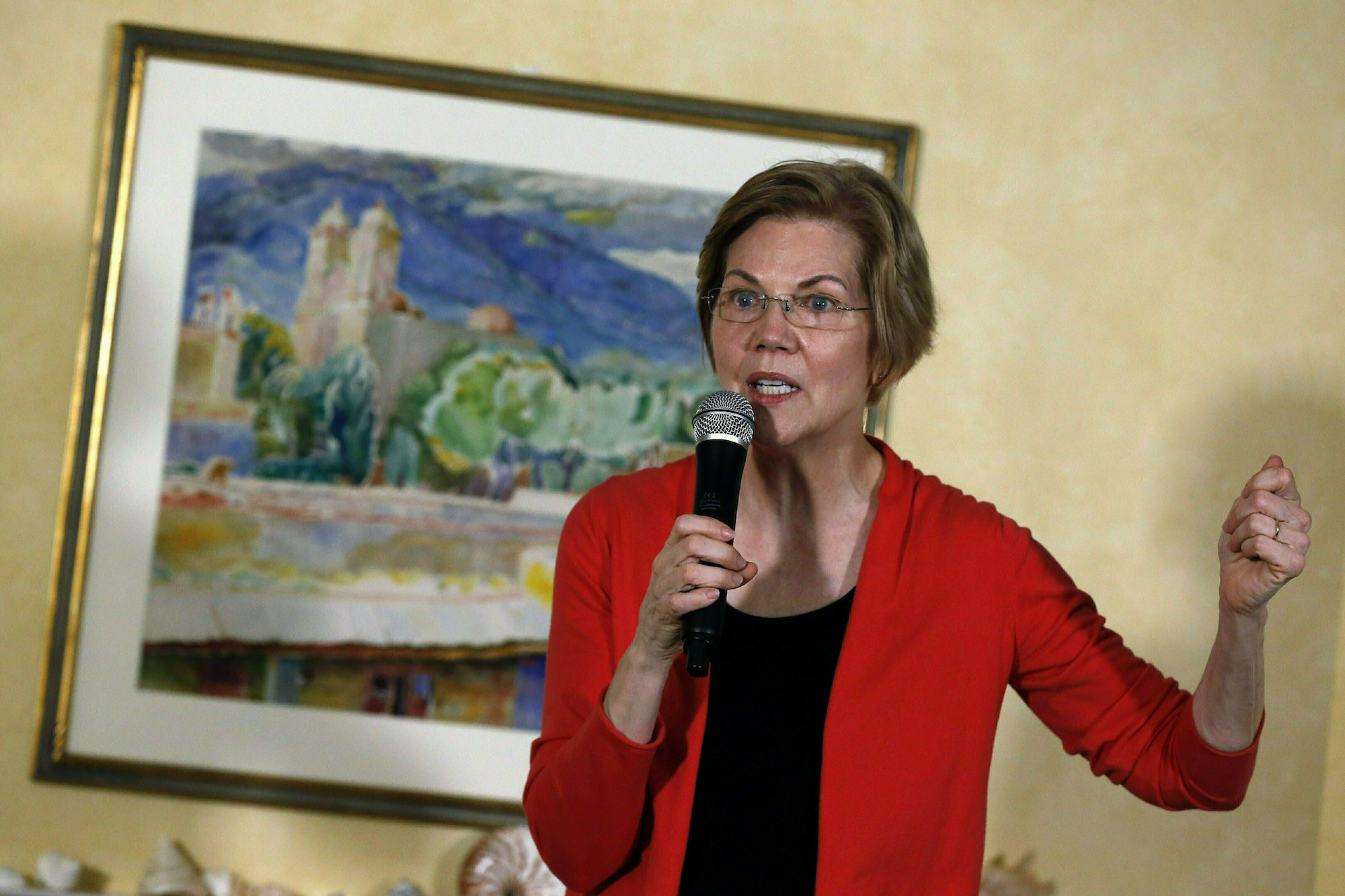WASHINGTON - The contest for the 2020 Democratic presidential nomination seemed to have little relationship to the madness that engulfed the nation's capital over the government shutdown. But there is a much closer relationship between the Washington meltdown and the campaign than you might think.
You also hear a lot about Democrats veering left. This, too, misses the point.
What we're actually seeing is a shift in the intellectual energy of American politics. This is the lesson of the disarray in the Republican Party and the ultimate capitulation of President Trump in the shutdown fight he initiated. Trump's decision to close the government in the vain pursuit of an essentially meaningless goal showed a party and ideological movement lost in the wilderness.
Trump's rise itself was a symptom of this. Traditional conservative nostrums of tax cuts for the best-off and business-friendly deregulation were not answering the needs of less affluent Republicans. Frustrated, they embraced Trump's nationalism and protectionism along with, in many cases, his racialized appeals. They also noticed that Trump defended key social-insurance programs - especially Social Security and Medicare, which serve an aging Republican base.
In practice, Trump has stuck resolutely to the old conservatism, the corporate tax cut being his major achievement. His administration is a coterie of millionaires and billionaires whose insensitivity to the shutdown's victims suggested a worldview inspired by French Bourbons, not prairie populists.
Trump has asked his blue collar loyalists to live on a diet of rhetoric and empty symbols, the border wall being Symbol No. 1. Trump's deteriorating poll numbers showed that all but the most extreme of his supporters were losing faith in his project.
In the meantime, liberals and the left have absorbed key lessons from the Trump insurgency. One of them is that a progressive movement seen as speaking primarily for affluent metropolitan areas will never command a durable majority. Another is that there is room for bolder political thinking, given the discontent in the country with unevenly shared economic growth.
What is interpreted as a leftward lurch can thus be better seen as an effort to pull the entire political spectrum away from the premises that have dominated American politics since the Reagan era. Those exerted a gravitational pull even on the Obama and Clinton presidencies.
Conservatives succeeded in selling the poppycock that showering money on the investing class - the "makers not the takers," the "job creators" - would lead to prosperity for all.
Presidential candidates, those thinking of running and other Democratic politicians are also responding to the policy vacuum on the right embodied by the shutdown-for-a-symbol. For starters, supply-side economics is so yesterday. There is now room to talk about a wealth tax, proposed last week by Sen. Elizabeth Warren of Massachusetts, and a large middle- and working-class tax cut offered by Sen. Kamala Harris of California.
The underlying assumptions of the right are under assault as well. Sen. Sherrod Brown, D-Ohio, has made "the dignity of work" his battle cry, making a case for the priority of labor over capital. Mayor Pete Buttigieg of South Bend, Indiana, has called on Democrats to reclaim the concept of "freedom" from the right by insisting that in many areas of everyday life, beginning with civil rights and health care, it takes government action to make freedom a reality.
During Jimmy Carter's administration in the late 1970s, conservatives launched an intellectual revolution that left liberals gasping for breath and helped create the presidency of Ronald Reagan. Trump is doing all he can to become the latest one-term president to empower a philosophical and policy rebirth among his opponents. The real wall is between conservatism and fresh ideas.
Washington Post Writers Group

